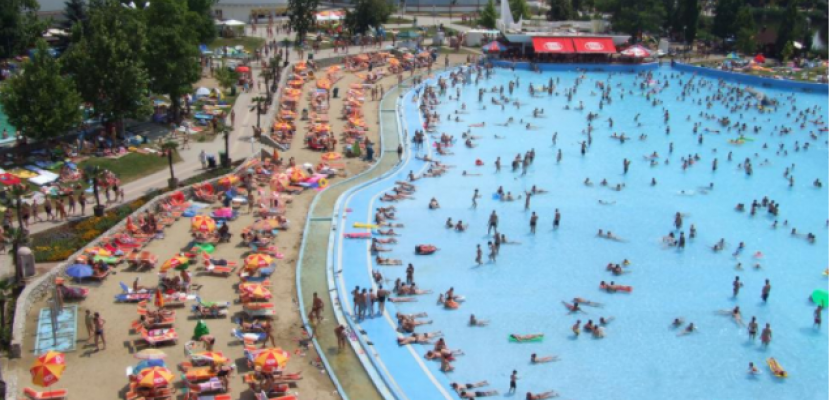Image

Recycling and reducing the environmental impact of thermal waters
Published on 18 November 2019

Hungary
This is the good practice's implementation level. It can be national, regional or local.
About this good practice
The major problems occurring during the handling of drained wastewater from the thermal spas are the high salinity and the largely present microbiological contamination. The aims of the project are to invent a new, complex technique that allows the optimized recycling of thermal waters with cavitational germ-exonerating and to reduce the level of salinity in the wastewater coming from these waters and their impact on the surrounding eco-system with the combination of algae-reactors, industrial reversed ozmotical techniques and hydrobiological methods.
As thermal water is a limited natural resource, we have to keep in mind its handling, which can make it possible for the new generations to use it and meanwhile sustainability can be attractive for the current customers, too as it shows the responsibility of the service provider. The significant level of salinity reduces the recoverability of surface waters. We have to accomplish a great ecological condition of the waters by the year of 2027. This is only possible in the case of the thermal-recipients if the level of salinity can be radically lowered. That is why it is very important at thermalism to have a sustainable desalinization process.
The research and development project was implemented in the consortia of two companies and two universities, who have different skills in the field.
As thermal water is a limited natural resource, we have to keep in mind its handling, which can make it possible for the new generations to use it and meanwhile sustainability can be attractive for the current customers, too as it shows the responsibility of the service provider. The significant level of salinity reduces the recoverability of surface waters. We have to accomplish a great ecological condition of the waters by the year of 2027. This is only possible in the case of the thermal-recipients if the level of salinity can be radically lowered. That is why it is very important at thermalism to have a sustainable desalinization process.
The research and development project was implemented in the consortia of two companies and two universities, who have different skills in the field.
Resources needed
1 379 078 500 HUF (4 596 900 EUR)
60 highly skilled people
ideas for desalinization
60 highly skilled people
ideas for desalinization
Evidence of success
The significance and the success of the implemented project lie in the fact that two separate social needs can be satisfied at the same time. There is no contradiction between the need of the society for those recreational and innovational healing methods, which can be satisfied by the utilization of the thermal waters, and the need of sustaining the quality of the natural environment.
We also have to mention the cooperation of the companies and the universities as an important factor.
We also have to mention the cooperation of the companies and the universities as an important factor.
Potential for learning or transfer
The developed technology is directly applicable for reducing the salinity of the drained water in every single thermal bath or hotel that uses thermal water, and all other facilities that use these waters. For this reason, there is a wide range of possible users in Hungary. However, given the fact that the high level of salinity is not country-specific, but a particularity of thermal waters, the possibilities hiding in the developed technology should not be restricted to Hungary, it is suitable in any thermal water as well. Using the technology, several pools can be operated with the equivalent amount of thermal water brought to the surface. Thanks to this reason, social and economic benefits can be directly experienced by the operators and the guests of these thermal facilities. The method is not only cost-saving, but makes the use of the thermal water sustainable, which also have a positive effect on the customers.
Good practice owner
You can contact the good practice owner below for more detailed information.
Organisation
Ministry for National Economy

Hungary
Észak-Alföld
Contact

director